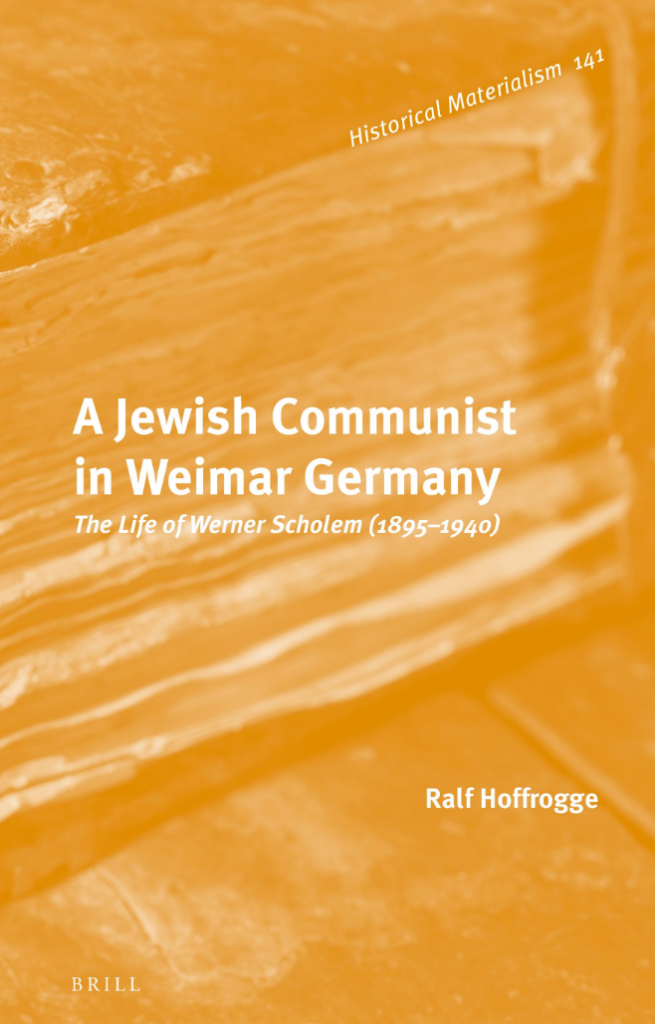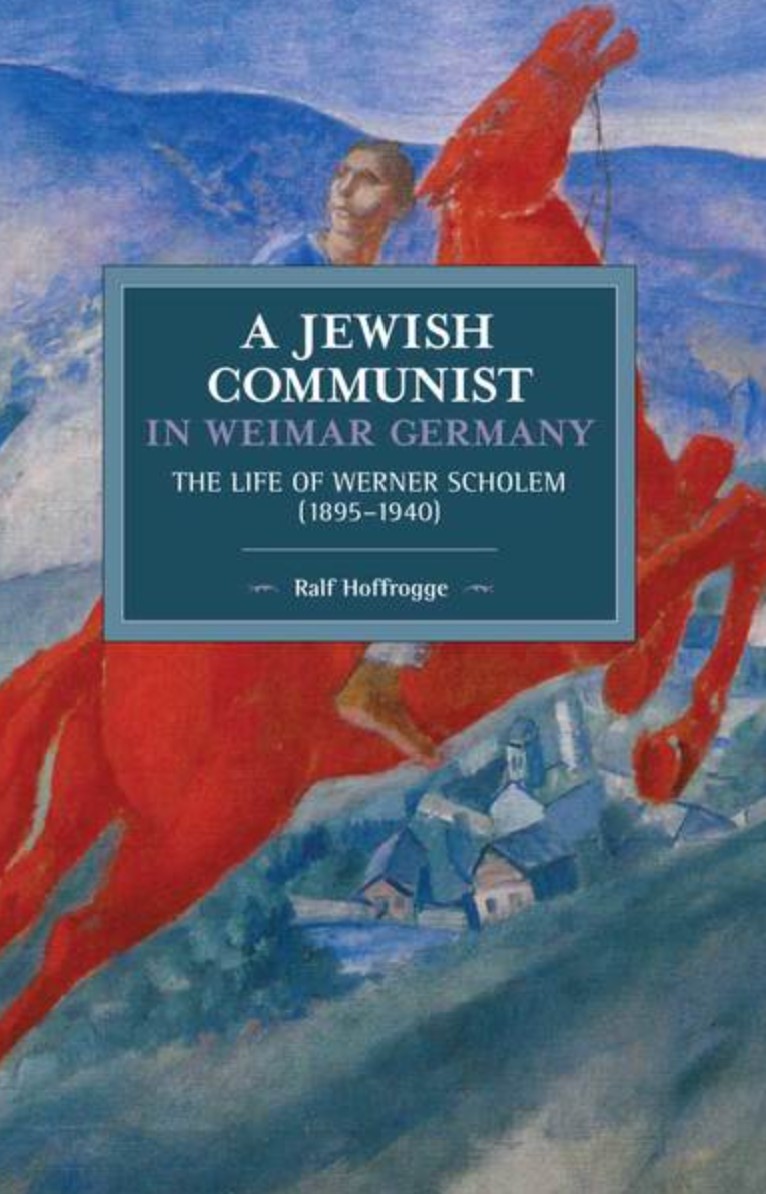Walter Benjamin derided Werner Scholem as a ‘rogue’ in 1924. Josef Stalin referred him as a ‘splendid man’, but soon backtracked and labeled him an ‘imbecile’, while Ernst Thälmann, chairman of the Communist Party of Germany (KPD), warned his followers against the dangers of ‘Scholemism’. For the philosopher and historian Gershom Scholem, however, Werner was first and foremost his older brother. The life of German-Jewish Communist Werner Scholem (1895–1940) had many facets. Werner and Gerhard, later Gershom, rebelled together against their authoritarian father and the atmosphere of national chauvinism engulfing Germany during World War I. After inspiring his younger brother to take up the Zionist cause, Werner himself underwent a long personal journey before deciding to join the Communist struggle. Scholem climbed the party ladder and orchestrated the KPD’s ‘Bolshevisation’ campaign, only to be expelled as one of Stalin’s opponents in 1926. He was arrested in 1933, and ultimately murdered in the Buchenwald concentration camp seven years later. This first biography of Werner Scholem tells his life story by drawing on a wide range of original sources and archive material long hidden beyond the Iron Curtain of the Cold War era.
First published in German by UVK Verlagsgesellschaft as Werner Scholem – eine politische Biographie (1895-1940), Konstanz, 2014.
Biographical Note
Readership
All readers interested in the history of the Weimar Republic, especially German-Jewish Relations, the rise of Nazism and the history of the German and International Communist Movement. Likewise, readers interested in the early entanglement of Zionist and Socialist ideas and the development of the thinking of Gershom Scholem and Walter Benjamin.
Table of Contents
Acknowledgements List of Illustrations List of Abbreviations Introduction 1 Adolescent Years (1895–1914) The Scholems: A German Family Four Distinct Brothers Rebellion(s): From Zionism to Socialism 2 World War and Revolution (1914–18) War and Socialism in Hanover A Red in Field Grey: Werner Scholem on the Eastern Front Hospital Reflections, 1916 Lèse-majesté: A Soldier’s Day in Court Werner and Emmy Scholem: A Mésalliance All Quiet on the Western Front: Werner Misses the Revolution 3 A Rebel at the Editing Desk, a Rebel in Parliament (1919–24) Independent Social Democracy and More: Werner Scholem as Agitator in the USPD Journalism and Judiciary: Werner Scholem as Editor of the Rote Fahne Reform or Revolution? A Parliamentarian in the Prussian Landtag Scholem as School Reformer Anti-Semitism and the Ostjuden Debate A Reluctant Republican? Fighting Right-Wing Terror and Fascism The Philosophy of History in the Landtag Inflation, Crisis and Radicalisation Reform or Revolution: Scholem’s Answer 4 Communism: Utopia and Apparatus (1921–6) The Berlin Opposition (1921–3) National Revolution on the Ruhr? Scholem and Schlageter in the Summer of 1923 From the Battle of the Ruhr to the ‘German October’ of 1923: New Conflicts in the KPD Reaching for Power: Scholem and His Comrades Take Over the KPD The Power of the Apparatus: Werner Scholem Organises the KPD The Apparatus Strikes Back: The Left Opposition on the Defensive Scholem Versus Stalin: A Question of Democracy? 5 A Reluctant Defector: Werner Scholem as Dissident (1926–8) A Left Communist in the Reichstag The Lenin League: Werner Scholem Founds a Party 6 Back to the Lecture Hall: Family and University Life in Berlin ‘At Home with Communists’: Emmy and Werner in Private Life as a Lawyer 7 The Triumph of Barbarism (1933–40) The Arrest Separate Paths: A Family Falls Apart Espionage and Intrigue: Werner Scholem as a Literary Figure The Hammerstein Case: Fiction and Reality From the Supreme Court to the ‘People’s Court’: Scholem’s Last Trial A Stolen Life: Plötzensee, Lichtenburg, Dachau Murder in the Quarry 8 Remembering Werner Scholem
Appendices
1 Chronology of Werner Scholem’s life 2 List of Werner Scholem’s Places of Detention, 1917–40 3 Selected Articles and Publications by Werner Scholem Bibliography Index


